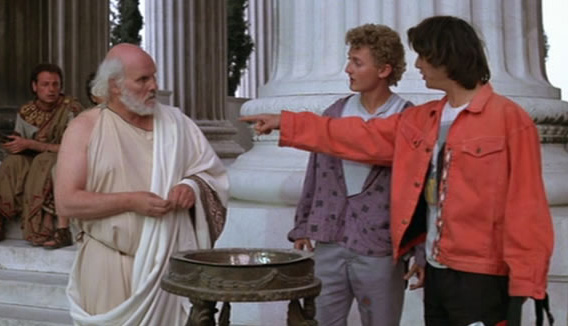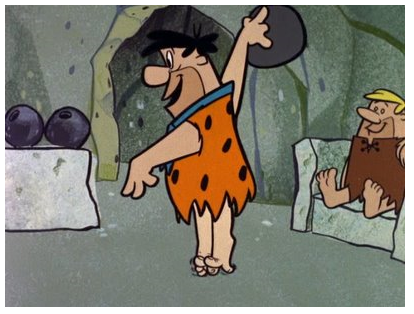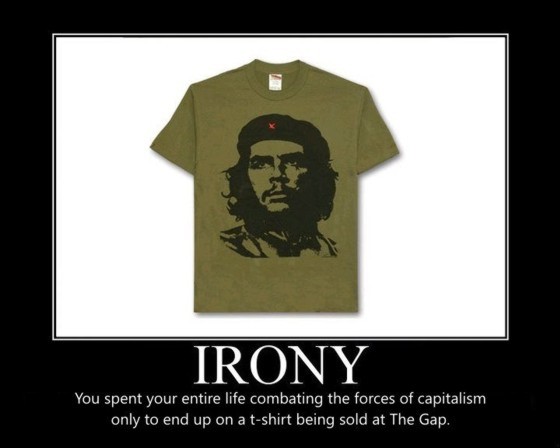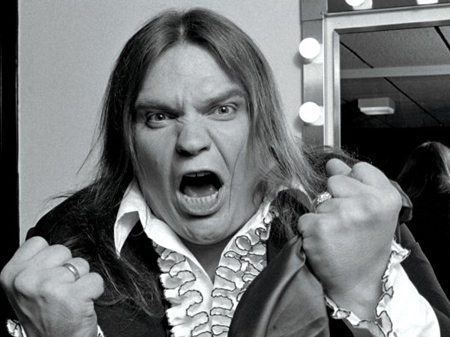There are three hosts on the show who spend the majority of their time behaving a lot like a bunch of adolescents. Not surprisingly, they seem to find bodily functions a great source of comedy. Nevertheless, when they start talking about music, or their favorite artists, they all of sudden become very solemn and respectful. In fact, when it comes to meeting some of their favorite metal heroes, they are downright worshipful. So much so that when a guest walks on stage, you half expect the hosts to start declaring in a fit of ecstasy "I'm not worthy, I'm not worthy", a la Wayne's World.
On occasion, the hosts will even go on a tirade about how silly religious groups have been complaining about some album jacket or some song lyric. What is so odd about their outrage is that the point of their music is to offend people. And so it comes off as a little bit disigneuous when they appear to be shocked because some silly Christian takes offense that one of their album covers portrays a crucifix in a vile of urine (or some such thing). To varying degrees they scorn such objectors, while at the same time praising words that by their own admission are filled with venom and hatred. This is the odd dichotomy that lies at the heart of most metal heads. For on the one hand they would never praise an action that was truly Satanic, while on the other, they do seem quite content to endorse the message when it appears in a song. If it rhymes, it's fine. Indeed, they justify it by saying that the words and music aren't meant to be taken so seriously, yet if you were try to criticize such music, you might think, judging from their response, that you had just insulted their mother.
A few years back, Ronnie James Dio's widow appeared on the show (Dio was at one time a member of Black Sabbath). Interestingly, both she and the hosts talked very little about his musical career and instead chose to focus on what a kind and generous person he was. On another episode, the lead singer of the band King Diamond, a self-professed Satanist in the school of Anton LaVey, explained how he nearly died during a recent heart operation. The discussion quickly became very serious as he relayed just how frightening the process was. At one point, one of the hosts even asked him if he had considered praying to God throughout the whole ordeal. That's right- a show often dedicated to taking "God-mocking" lyrics lightly, wants to know if the great King Diamond, the professed Satanist, prayed? And in case you're curious about his response, it was remarkably interesting. He never came right out and said that he wouldn't, but instead chose to tell everyone that he had his wife bring him a necklace with three crystals, one of which possessed the soul of his recently deceased cat, a cat who apparently possessed "very special powers of healing." What he did not say was that he appealed to the "sweet graces" of the evil one, nor did he pretend that Beelzebub would offer him hope in such a dark hour. Instead, he put his faith in a crystal that held the soul of his cat! Amazing what lengths some will go to in order to avoid admitting that they need God.
Another raging blind-spot among metal musicians (as well as their devotees) is the effect that the music has upon the listener. For example, when both Ozzy Osbourne and Judas priest were accused of encouraging two youths to commit suicide through their music (Rob Halford actually stood on trial for this), they were absolutely incredulous as to how the words of a song could possibly have such an effect on young people. Indeed, they saw no connection between their songs being dark, violent, and despairing, and the subsequent behavior of youths who sought to emulate what was glamorized in these songs. Imagine that; what you say and do has an effect on what others say and do. This is not to say that I think this was their intention- for both Ozzy and Halford looked genuinely shaken by these tragic events, but the level of naiveté on the part of both borders on that of a seven year old child who is shocked that a house has burned down as a result of him playing with matches.
Apart from the tragedy itself, what is most striking about these events is just how stunned and saddened these artists were by the occurrence in real life of the events that they so artfully describe in their songs. In most cases, I really do believe that they do not know what they are doing. But ignorance nevertheless does not make "playing with fire" any less dangerous (in this situation you might even call it playing with hell fire). In other instances, I think that the naiveté is more of a kind of willful ignorance. The artist knows that people aren't listening to these messages because they are innocuous, anymore than people watch a Lady Gaga video because they expect family-friendly entertainment. They listen to them because they appeal to the most visceral and violent part of themselves. I am not talking here so much about Halloween metal, which I would associate with someone like Alice Cooper. I am speaking about the kind which either does make a direct appeal to the evil one, or sounds like the unleashing of something that most would regard as terrifying. The question is, how can it be both cool and uncool at the same time to say these things? These bands will argue that their songs help disaffected youth express their frustration in a healthy way, but darkness and hatred are not pacified by further fomenting them; they are pacified by suggesting a more rational way to deal with those powerful emotions.
Of all the guests that I have seen on the show, Marilyn Manson was perhaps the crudest and most vile. I watched his interview thinking, maybe this guy has learned a thing or two since "Anti-Christ Superstar". Alas, he is one of the rare shock rockers who is just about as unpleasant in an interview as he is in his music. However, in spite of all of his vulgarity, when it came to discussing some of his music heroes, he was practically prostrate with admiration for them. Yes, even the born-again Alice Cooper was regarded by him as a great pioneer of rock. Even more interesting was his take on the Columbine massacre. Apparently the shooters were huge Manson fans, and so naturally people asked what sort of influence he may have had on them. Not surprisingly, Manson was shocked and appalled by this prospect, complaining that he was merely a scapegoat (a goat seems to be an appropriate image) for the crime. The truly guilty party was certainly not himself, but rather a society that glamorizes this sort of violence. I still cannot get over the sense of wonder on his face that some kids might actually take what he was saying in his songs seriously. Dress it up if you like with some philosophical argument about how Manson is really offering a critique of society, but kids are not going to consult Socrates in order to understand song lyrics. Christians are often criticized for being naive, but this kind of "innocence" makes the simplest Evangelical Christian seem about as wise as a serpent.
But whatever your persuasion, it is at bottom worth repeating just how reverential metal heads are about their music. On the show, quite regularly they will invoke the illusutrious "metal gods" subsequent to any significant metal announcement. And whenever they deem that something is particularly hard core, they give the universal sign of metal heads, namely the horns. Furthermore, just as the Church has a process called canonization, they too would never dare utter a blasphemy against any one of their saints or icons that had been inducted into their hall of fame (though ironically they have no problem blaspheming God). Along with a common set of rituals, they even have what some might call a metal reliquary, a place in their homes wherein they keep items that have been touched by a particular metal hero. They are the disciples of metal- the experts on every fact and detail surrounding their favorite artists. It is, shall we say, their religion. It is the cult of cool. All is forgiven, and all is good, as long as said coolness reigns. And what is "cool" according to them? Anything that is dark, rebellious, and destructive. And though they will not direct that same reverence towards God, they do demonstrate in the oddest of ways that every man is made for worship. And even though they would seem to be the last person on the face of the earth to be accused of being religious, they too have their own religious ceremonies through which they demonstrate an ecstatic devotion to their particular gods. While it is true that they spend a great deal of their time being irreverent to God, it is also true that they remain painfully ignorant of the potential ramifications of this. So forgive them, Father, for they know not what they do, or at least give them the eyes to see what most of us simply recognize as the principle of cause and effect.






















